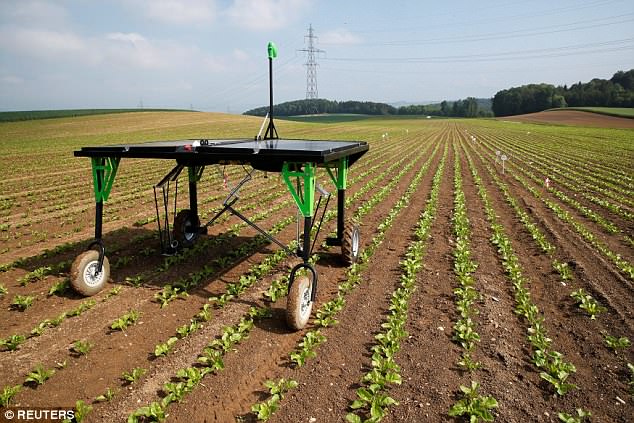A new solar-powered weed killer robot, that looks like a table on wheels can scan rows and rows of crops with its camera and zaps weeds with jets of blue liquid as soon as they are identified. The liquid will be replaced by a weed killer spray as soon as final tests are complete.
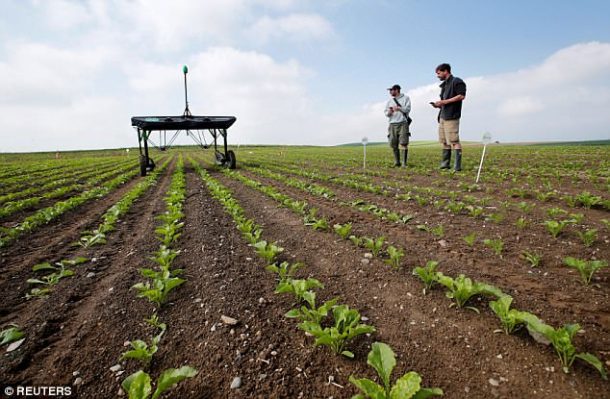
This is a new breed of AI weeders that could disrupt the $100 billion pesticides and seeds industry by reducing the need for herbicides and modified crops. “Some of the profit pools that are now in the hands of the big agrochemical companies will shift, partly to the farmer and partly to the equipment manufacturers,” said Cedric Lecamp, who runs the $1 billion Pictet-Nutrition fund that invests in companies along the food supply chain.
Even though the technology is still in the initial phase, ot marks a shift from the standard methods of crop production to plant-by-plant approach. ecoRobotix, the developer of the weed killer robot believes that the design can reduce the amount of herbicide farmers use by 20 times.
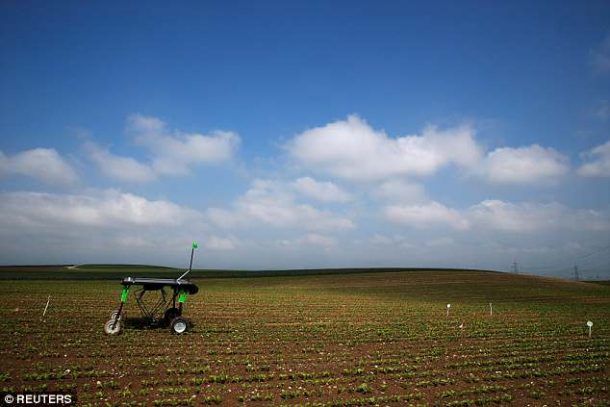
Blue River, a Silicon Valley startup bought by US tractor company Deere & Co last year has also developed a machine to distinguish weeds by using onboard cameras and squirt herbicides only where necessary. German engineering company Robert Bosch is also working on a similar precision spraying kits.
Other startups like Denmark’s Agrointelli are also working on similar technology and show how it is gaining traction. ROBO Global, an advisory firm that runs a robotics and automation investment index tracked by funds worth a combined $4billion, believes plant-by-plant precision spraying will only gain importance.
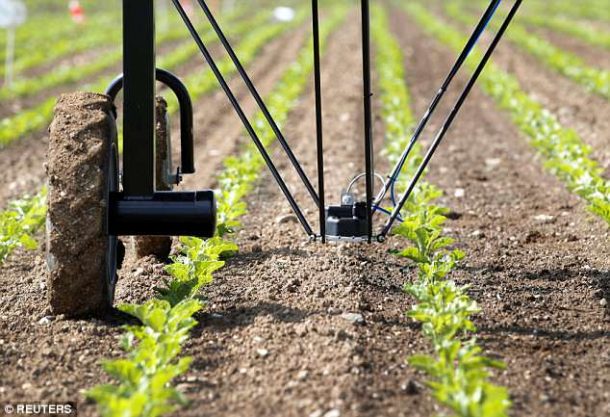
“A lot of the technology is already available. It’s just a question of packaging it together at the right cost for the farmers,” said Richard Lightbound, Robo’s CEO for Europe, the Middle East, and Africa. “If you can reduce herbicides by the factor of 10 it becomes very compelling for the farmer in terms of productivity. It’s also eco-friendly and that’s clearly going to be very popular, if not compulsory, at some stage.”
Jeneiv Shah, deputy manager of the $212 million Sarasin Food & Agriculture opportunities fund said that it will put crop business could be at risk as the new technology provides a simpler solution. “The fact that a tractor and row-crop oriented company such as John Deere did this means it won’t be long before corn or soybean farmers in the U.S. Midwest will start using precision spraying.”
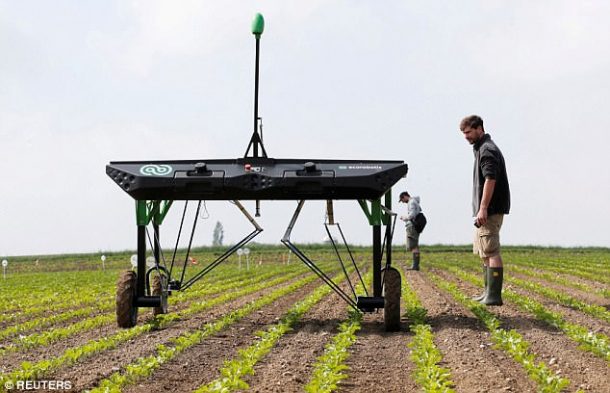
The weed killer robot, with its precision spraying definitely a cause for worry for the giants that have a monopoly in the pesticides and genetically modified seeds. The new technology not only offers a cheaper alternative, it is much more efficient.

